The second is London. Spar should be much stronger in the capital, he believes. "In the rest of the country we're densely populated. We do not have a presence to speak of in the capital."
And, thirdly, increasing profit is a priority, of course. "Costs are rising disproportionately for small stores. Finding new ways to be profitable really is vital."
Marwood enjoyed his earlier Spar stint, working as deputy md under Morton Middleditch. But the chance to head his own operation "was an opportunity I couldn't refuse. It had always been my ambition to md a business".
One time Tesco colleague Jeremy Symonds' family firm had bought Newshops, a 50-store CTN chain with a turnover of £20m. "Jeremy and his father Alan were heavily involved in the wholesaling side and asked whether I was interested in running Newshops."
He relished getting involved in the day-to-day running of the business but says: "Probably the most enjoyable part was handpicking a team, and developing it and knowing they could continue after you. My approach was if I got run over by a bus tomorrow, they shouldn't miss me too much."
His Newshops experience means he is now fully tuned in to the challenges facing his members. "I've run a Spar store. I've run a CTN business. I've got the components. Now it's about whether I can turn that into some kind of result."
Marwood had no qualms about taking over the job but one thing has dogged him since  the long shadow cast over the role by flamboyant former MD John Irish. "People keep asking me about him," he confides, "but I'm not about to follow his style. He did a brilliant job, but things are different now and I've got my own way of doing things."
Gateway to the future
Now 43, Marwood's always been ambitious. As a 19-year-old Gateway trainee manager, he admits he was getting a bit too big for his boots. "I'd done my two years as a trainee, and I thought I ought at least to be running the biggest shop in the chain."
Gateway didn't agree, so he went to Tesco as a management trainee. He had a great time, but more importantly he met and became firm friends with a fellow trainee called Jeremy Symonds.
A year later his old employer poached him back to run his first store. It was a time of great expansion for the company that would become Somerfield. One of its acquisitions was a chain of Spar stores on the Isle of Wight. Marwood was drafted in to run one and manage its conversion to a Gateway store. He recalls: "Freshwater was about 2,000 sq ft and during the summer months it had the highest turnover per sq ft in the company. You went to work in the dark and you got back in the dark. It was intense."
He went on to manage three more bigger stores before "going on the road" in field operations for a couple of years.
Marwood than volunteered to run a management training course. He says: "I got the bug for training and development and ended up back in Bristol in central office." By this time the company was in trouble but Marwood says: "It was a brilliant place to work because of the highs and lows. If you were flexible, if you were interested in change then it was fantastic because there were so many new opportunities."
Marwood worked on new formats and new ways of retailing such as the original Somerfield home delivery service. But with the contraction of the business, opportunities were limited, and Marwood decided to take a job as retail director at Spar head office and quickly realised "I knew nothing about the business  the first six months were absolutely traumatic".
But he believes that experience was invaluable. "Spar's not a traditionally structured business. The first thing is to absorb that. Now I make sure that when someone joins the business, we spend a lot of time explaining it is not just different culturally, it's different structurally."
Marwood's understanding was broadened when Spar was one of the groups invited to tender to partner the armed forces retailer Naafi. Marwood was put in charge and says: "It allowed me to roam all over the business and understand what we needed to do to deliver that product.It got me involved in the culture of the business."
Marwood recognises Spar has a reputation for being a complicated operation, and wants to make it easier for people to deal with, particularly retailers.
He adds: "There are so many myths about what you've got to do to join Spar, but it's probably the least restricted business there is."
His final priority is one that has been important through his working life. "We have to make sure we enjoy what we do. Not forgetting the commercial aspect, but we should be able to work in an environment that's enjoyable and where people respect each other."
{{ANALYSIS }}
And, thirdly, increasing profit is a priority, of course. "Costs are rising disproportionately for small stores. Finding new ways to be profitable really is vital."
Marwood enjoyed his earlier Spar stint, working as deputy md under Morton Middleditch. But the chance to head his own operation "was an opportunity I couldn't refuse. It had always been my ambition to md a business".
One time Tesco colleague Jeremy Symonds' family firm had bought Newshops, a 50-store CTN chain with a turnover of £20m. "Jeremy and his father Alan were heavily involved in the wholesaling side and asked whether I was interested in running Newshops."
He relished getting involved in the day-to-day running of the business but says: "Probably the most enjoyable part was handpicking a team, and developing it and knowing they could continue after you. My approach was if I got run over by a bus tomorrow, they shouldn't miss me too much."
His Newshops experience means he is now fully tuned in to the challenges facing his members. "I've run a Spar store. I've run a CTN business. I've got the components. Now it's about whether I can turn that into some kind of result."
Marwood had no qualms about taking over the job but one thing has dogged him since  the long shadow cast over the role by flamboyant former MD John Irish. "People keep asking me about him," he confides, "but I'm not about to follow his style. He did a brilliant job, but things are different now and I've got my own way of doing things."
Gateway to the future
Now 43, Marwood's always been ambitious. As a 19-year-old Gateway trainee manager, he admits he was getting a bit too big for his boots. "I'd done my two years as a trainee, and I thought I ought at least to be running the biggest shop in the chain."
Gateway didn't agree, so he went to Tesco as a management trainee. He had a great time, but more importantly he met and became firm friends with a fellow trainee called Jeremy Symonds.
A year later his old employer poached him back to run his first store. It was a time of great expansion for the company that would become Somerfield. One of its acquisitions was a chain of Spar stores on the Isle of Wight. Marwood was drafted in to run one and manage its conversion to a Gateway store. He recalls: "Freshwater was about 2,000 sq ft and during the summer months it had the highest turnover per sq ft in the company. You went to work in the dark and you got back in the dark. It was intense."
He went on to manage three more bigger stores before "going on the road" in field operations for a couple of years.
Marwood than volunteered to run a management training course. He says: "I got the bug for training and development and ended up back in Bristol in central office." By this time the company was in trouble but Marwood says: "It was a brilliant place to work because of the highs and lows. If you were flexible, if you were interested in change then it was fantastic because there were so many new opportunities."
Marwood worked on new formats and new ways of retailing such as the original Somerfield home delivery service. But with the contraction of the business, opportunities were limited, and Marwood decided to take a job as retail director at Spar head office and quickly realised "I knew nothing about the business  the first six months were absolutely traumatic".
But he believes that experience was invaluable. "Spar's not a traditionally structured business. The first thing is to absorb that. Now I make sure that when someone joins the business, we spend a lot of time explaining it is not just different culturally, it's different structurally."
Marwood's understanding was broadened when Spar was one of the groups invited to tender to partner the armed forces retailer Naafi. Marwood was put in charge and says: "It allowed me to roam all over the business and understand what we needed to do to deliver that product.It got me involved in the culture of the business."
Marwood recognises Spar has a reputation for being a complicated operation, and wants to make it easier for people to deal with, particularly retailers.
He adds: "There are so many myths about what you've got to do to join Spar, but it's probably the least restricted business there is."
His final priority is one that has been important through his working life. "We have to make sure we enjoy what we do. Not forgetting the commercial aspect, but we should be able to work in an environment that's enjoyable and where people respect each other."
{{ANALYSIS }}







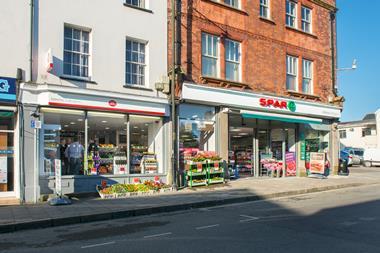
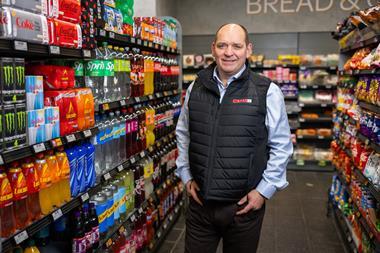
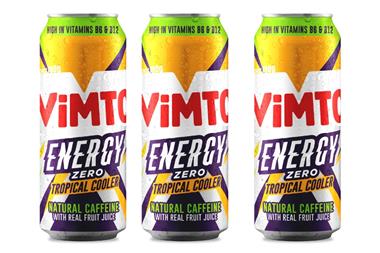

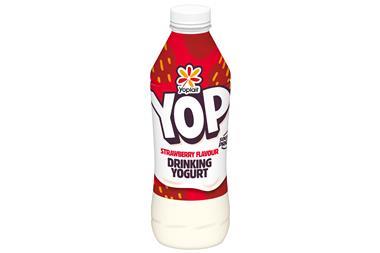
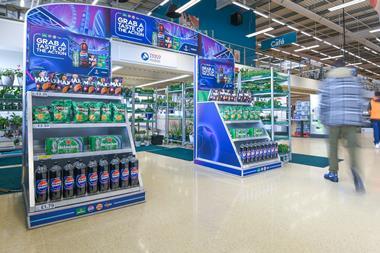
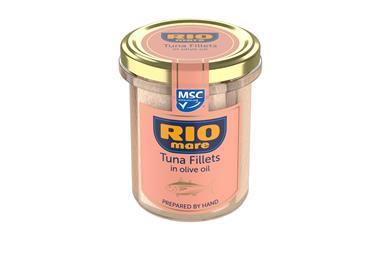
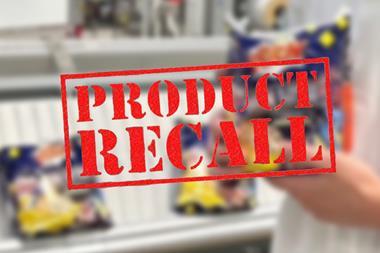

No comments yet